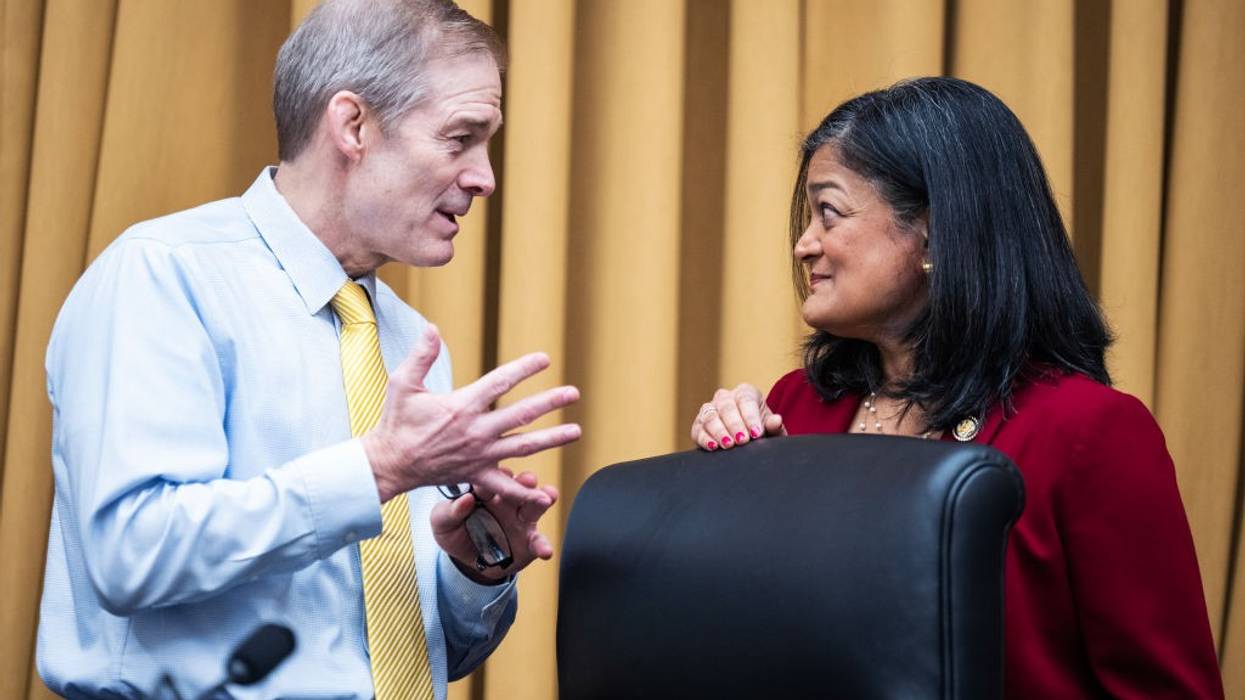Big Tech’s Most Effective Lobbyist, Jim Jordan, Is Temporarily Constrained
The House Judiciary Committee under Jordan has not merely diverged from bipartisan concerns over corporate power, it has helped neutralize any meaningful legislative solutions by redefining the very nature of the threat.
A silver lining of the current government shutdown is that Rep. Jim Jordan can no longer use his position as chair of the House Judiciary Committee to waste taxpayer dollars lobbying for the most powerful technology corporations.
The most recent example of this waste was a nearly five-hour hearing in which Rep. Jordan (R-Ohio) gave the United Kingdom’s Nigel Farage a platform on Capitol Hill to attack Britain’s efforts to protect children online and the European Union's efforts to address the dominance of Alphabet, Amazon, Apple, Booking, ByteDance, Meta, and Microsoft in European digital markets. Also discussed were European efforts to set ground rules for digital information ecosystems. The hearing produced fireworks and sound bites about “authoritarian” speech policing. It was a performative act dressed up as oversight.
Are these laws perfect? No. Do they apply in the United States? No. Should we be spending taxpayer dollars to lobby for trillion-dollar companies abroad? No. Yet, Jim Jordan has been traveling the world on our dime to lobby for Big Tech in the name of protecting “free speech.”
This shift from antitrust to anti-woke is a gift to Big Tech.
House Republicans keep promising a crusade against Big Tech’s power. If they were serious, they would likely find support from their Democratic colleagues.
The industry's greatest vulnerability lies in the economic arguments against the harms of market concentration—arguments supported by a growing body of evidence and bipartisan concern. The industry’s greatest strength, however, lies in its ability to reframe any regulatory effort as a politically charged battle over the First Amendment.
The House Judiciary Committee under Jim Jordan has not merely diverged from bipartisan concerns over corporate power and its harms to children. It has become the perfect rhetorical counteroffensive by helping neutralize any meaningful legislative solutions by redefining the very nature of the threat. Where most see a market failure requiring economic intervention, the House Judiciary Committee under Chairman Jim Jordan alleges political persecution requiring investigations into government "weaponization." This redefinition is the single most valuable outcome a regulated industry could hope for from its oversight body, transforming a legislative threat into a political shield.
Where is the House Judiciary Committee that conducted a landmark 16-month investigation into the market power of Apple, Amazon, Facebook (now Meta), and Google?
That bipartisan investigation—spanning seven hearings and nearly a million documents—produced broad consensus on the problems affecting these markets, and the need for more resources for antitrust enforcement.
That is the hard work of governing. What Jim Jordan has delivered instead is theater.
The result is that the real work of promoting open markets where everyone has a fair shot remains unfinished. Congress could pass legislation to address the monopoly power that allows Apple and Google to control our smartphones, Amazon to exploit small businesses and consumers, and Meta to operate with little regard for the welfare of our children.
None of this requires viral hearings. House Republicans keep promising a crusade against Big Tech’s power. If they were serious, they would likely find support from their Democratic colleagues. Few issues have managed to forge the kind of bipartisan consensus seen in the effort to rein in the monopolistic power of the largest corporations.
Unfortunately, that seems unlikely under the leadership of Jim Jordan.


